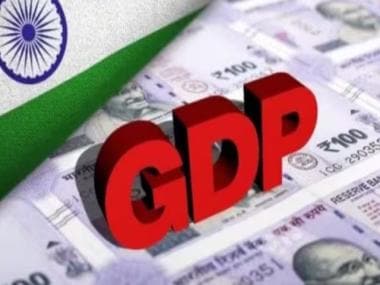The Indian economy is projected to expand by 6.2 per cent in the upcoming fiscal year, driven primarily by a favourable combination of neutral policy settings, positive credit momentum, and manageable macros despite 15-year high household debt levels, according to a report from a foreign brokerage on Tuesday.
Despite the rising external headwinds, India is likely to grow 6.2 per cent next fiscal against a consensus of 6.3 per cent to USD 3.9 trillion from USD 3.57 trillion in FY24 on a likely 7 per cent growth, as consumption growth is likely to stabilise at 4.7 per cent from 4.5 per cent in FY24, Tanvee Gupta-Jain, the UBS India chief economist, said in a note.
A pick-up in capex is expected to become more broad-based in FY25, led by marginally moderate public capex but higher private corporate capex after elections, Jain said.
Another growth driver will be the residential housing sector along with exports, which may marginally improve, depending on global growth.
“We expect India to maintain medium-term growth of 6.5 per cent annually from FY26 through FY30 when it sees the GDP touching SD 6 trillion,” she said, adding the country’s potential growth could benefit from digitalisation adoption, increased services exports and a manufacturing push.
However, she flagged the record high level of household debt, which according to the latest RBI data surged to 5.8 per cent of GDP in FY23.
Explaining the sweet spot that the country is in, she said a key factor supporting better economic activity is the sharp pick-up in credit growth, which may clip at 13-14 per cent next fiscal as well (which is also partly driven by higher household leverage explaining a fifth of the past two years private consumption growth).
“We expect bank credit to sustain double-digit growth of 13-14 per cent in FY25 and a virtuous investment cycle could help shift the credit driver from fast-growing consumer loans towards manufacturing/infra sectors,” she said.
On the forthcoming general elections, the brokerage said recent opinion polls and state election results suggest an increased probability that the BJP will perform well in the upcoming general elections, thus reducing risks of fiscal populism.
“We believe political stability supports policy continuity, leading toward further digitalisation and reforms to boost manufacturing/exports, given the country’s increasing footprint in global value chains.
“On the equities, the note said after outperforming EMs by 11 per cent in 2023, the domestic market trades at an 86 per cent (one-year forward premium) premium to EMs. FII and household flows into the markets held strong in 2023, supporting these valuations, which the brokerage believes, are driven by a perception of better geopolitical and macroeconomic positioning.
“However, sell-side EPS growth estimates are their lowest ever and valuations are close to their peaks. Accordingly, we are underweight on India within EMs,” the note said.
Jain expects CPI to moderate from 5.4 per cent in FY24 to 4.8 per cent in FY25, as food prices normalise and supply conditions improve and believes that inflation in this cycle will take much longer to reach the targeted 4 per cent.
With inputs from PTI.
Link to article –





